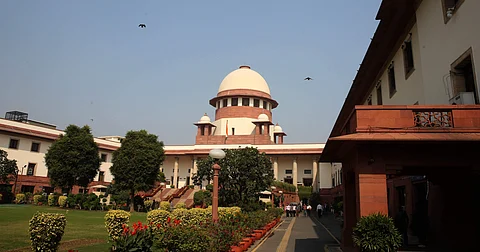

HYDERABAD: The July 18, 2019 order by a three-judge Bench of the Supreme Court in the ‘encounters’ case does not uphold the landmark judgment by a five-judge bench of the Andhra Pradesh High Court on February 6, 2009, say lawyers and social activists.
The three-judge bench of Chief Justice Ranjan Gogoi, Justice Dipak Gupta and Justice Anirudha Bose “does not state, as the AP HC judgement did, that after every ‘encounter’ death a First Information Report (FIR) has to be registered against police personnel who have participated in the ‘encounter’,” says VS Krishna, AP&TS Coordination Committee member, Human Rights Forum (HRF) referring to the judgement. Instead, “The SC has now only said that an FIR has to be registered, not that it has to be filed against those police personnel who have participated in the said exchange of fire and are resorting to the plea of self-defence,” he adds.
Police do lodge an FIR — against the dead person — under Section 307 of the IPC alleging that the now deceased attempted to murder police personnel. And since the person or persons who had so attempted to kill police is now dead in the purported encounter, the case is simply closed.
The SC has placed faith in the matter of investigation of police encounters on a 2014 decision of the Supreme Court (Peoples Union for Civil Liberties (PUCL) and another vs State of Maharashtra and others, 2014). Stating that this judgment “laid down a detailed and exhaustive procedure to be followed in such cases”, the SC on July 18 held that the directions in the PUCL case be treated as law in the matter of investigating police encounters.
Fundamental issue
Calling the judgement, “illogical and inconsistent” N Venugopal, Editor of Veekshanam, says, “The issue posed before SC was an appeal on the AP HC judgment. It should have either accepted or dismissed the appeal. Instead, it dismissed the appeal, at the same time it did not uphold the HC judgment.”
In the PUCL case, there is no clear and explicit direction to register FIR against the police personnel responsible for causing death in an ‘encounter’, only that an FIR has to be registered. By reiterating this judgement and holding it to be the law of the land, the SC has circumvented the fundamental issue -- which is that FIRs have to be filed against police personnel in all cases of ‘encounter’ deaths.
“The PUCL judgement does not give clarity about the ‘how and when’, it is vague and will now hold the field. It is a terrible letdown and it will be a fight all over again,” Vasudha Nagraj, an advocate, says.
Concurring with Vasudha that the SC judgement is not clear, L Ravichander, senior advocate comments: “The criminal procedure code does not differentiate between a policeman and others. The police have no defence until trial; they are not entitled to say that the death or injury occurred in the course of implementing the law. It is strange, that in every encounter, the victim dies and police are injured. The cops are getting away with extremism in the name of ‘encounter’.”
Going beyond its brief
Saying that the present judgment by proclaiming the earlier SC judgment as law goes against the constitutional guarantee to right to life, Venugopal adds, “Any court has a right to go beyond its brief and bring in newer elements, but the new elements have to be in the same purview or enrich the brief. In this case, the HC judgment was much better, in terms of establishing rule of law and upholding right to life and hence, the SC erred in bringing an inferior judgment to counter the HC one and proclaimed the former as law.”
According to the SC judgement, “An independent investigation into the incident/encounter shall be conducted by the CID or police team of another police station under the supervision of a senior officer (at least a level above the head of the police party engaged in the encounter)”. In other words, the police will be investigating alleged crimes of their brethren. “This SC order will only result in cops getting away scot-free without being criminally prosecuted as has been the case and even so after the September 23, 2014 PUCL judgement,” feels Krishna.
All ‘encounter’ cases must be registered as two crimes — under Section 307 and Section 302 of the IPC. The first is on the crime of attempt to murder by the now deceased, and the other, a crime of culpable homicide amounting to murder by the police, purportedly in self-defence, reiterate the activists.